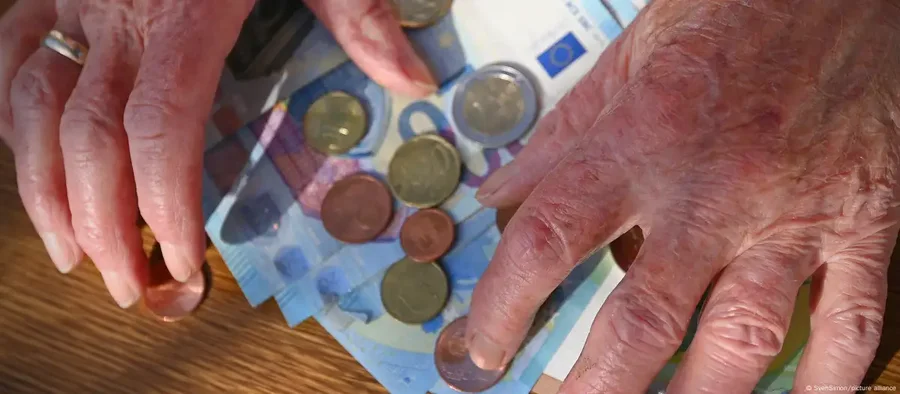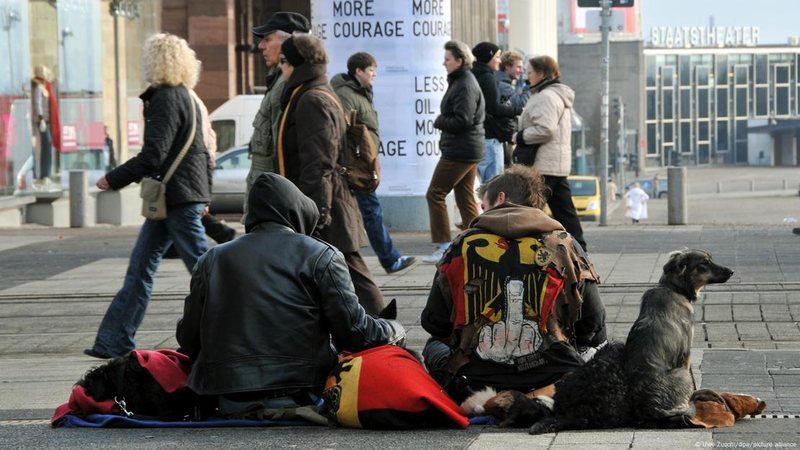
In the days of Christmas, the gap between the poor and the rich becomes more visible. Some can barely afford the gifts, others stand in line in front of luxury stores.
14 million people in Germany are considered poor, and for some, money doesn't matter. The contrast becomes visible especially now in Christmas days. Sandra Schlensog experienced this these days. She only went out to stroll through the Christmas market in Karlsruhe because she couldn't buy anything, as she can't afford the prices. "A pair of hand-knitted socks for 15 euros? That's utopian," says the 46-year-old, putting the pair she's holding back into place.
Sandra Schlensog receives social assistance known as "citizen money" and also works eight hours a week in a center for the mentally ill. She cannot work full time due to health problems. Money never comes to her - but especially at Christmas time she feels her financial situation very much. "There are simply no expensive gifts," she says: "And there are no grilled sausages at the Christmas market either."

Handbag for 700 euros
No one in Stuttgart's "Dorotheen Quartier" gives a damn about buying a sausage. The popular shopping street in the state capital, Baden-Württemberg with its elegant shops has a strong clientele. At Louis Vuitton, prices for handbags usually reach four figures, but there are still queues in front of the store in the run-up to Christmas. Here, among many others, is Thomas Gudd. He wants to buy a bag for his girlfriend: "It has to be something special this year."
And the bag that Manfred Holzknecht buys for his wife is even cheaper by local standards: 700 euros. "Women just love bags," he says. "If you've been married for a long time, you have to make your wife happy again." This also applies outside of the Christmas season, says his wife Katharina: "He just buys something every now and then for a little joy."

Make the gift yourself, not buy it
For Sandra Schlensog, out-of-order shopping isn't even possible at Christmas. That's why she donates homemade items like cookies or knitted hats. She makes only one exception for her 16-year-old son: all year she has been saving for his Christmas present. "Now that I have a part-time job, I can put aside ten or 15 euros a month," she says. This means that she saves about 150 euros a year. The money she also used to finance her Christmas present for her son.
Above all, he wants clothes. In his closet, he finds only the "necessary" things, says his mother: two sweaters, a few T-shirts, a pair of jeans - "he's wearing the other jeans," says his mother. In her rented apartment, the wallpaper is falling off the walls. "Actually, it needs to be redone and painted," says Sandra Schlensog. But they don't have enough money for that. The furniture also shows its age: an armchair has a sponge coming out of a crack and the 17-year-old sofa is sagging. "This was my bed for a long time," says Sandra Schlensog. Now she has a real bed again, thanks to a donation.
Visits to attractions cost
Sandra Schlensog and her son are not exceptional cases in Germany: the General Paritätische Wohlfahrtsverband (Paritätische Wohlfahrtsverband) counts 14 million people as poor. For many people, poverty becomes especially apparent when the Christmas season begins. Still, Sandra Schlensog likes Christmas: "I try for as much convenience as possible," she says. However, she would like to have a small "luxury" or two, as she puts it, such as a carousel ride at the Christmas market. "I think it's beautiful, especially in the evening." But a trip costs six euros for adults. "It's just too expensive," says Sandra Schlensog: "I can't afford it." /DW/ (A2 Televizion)













